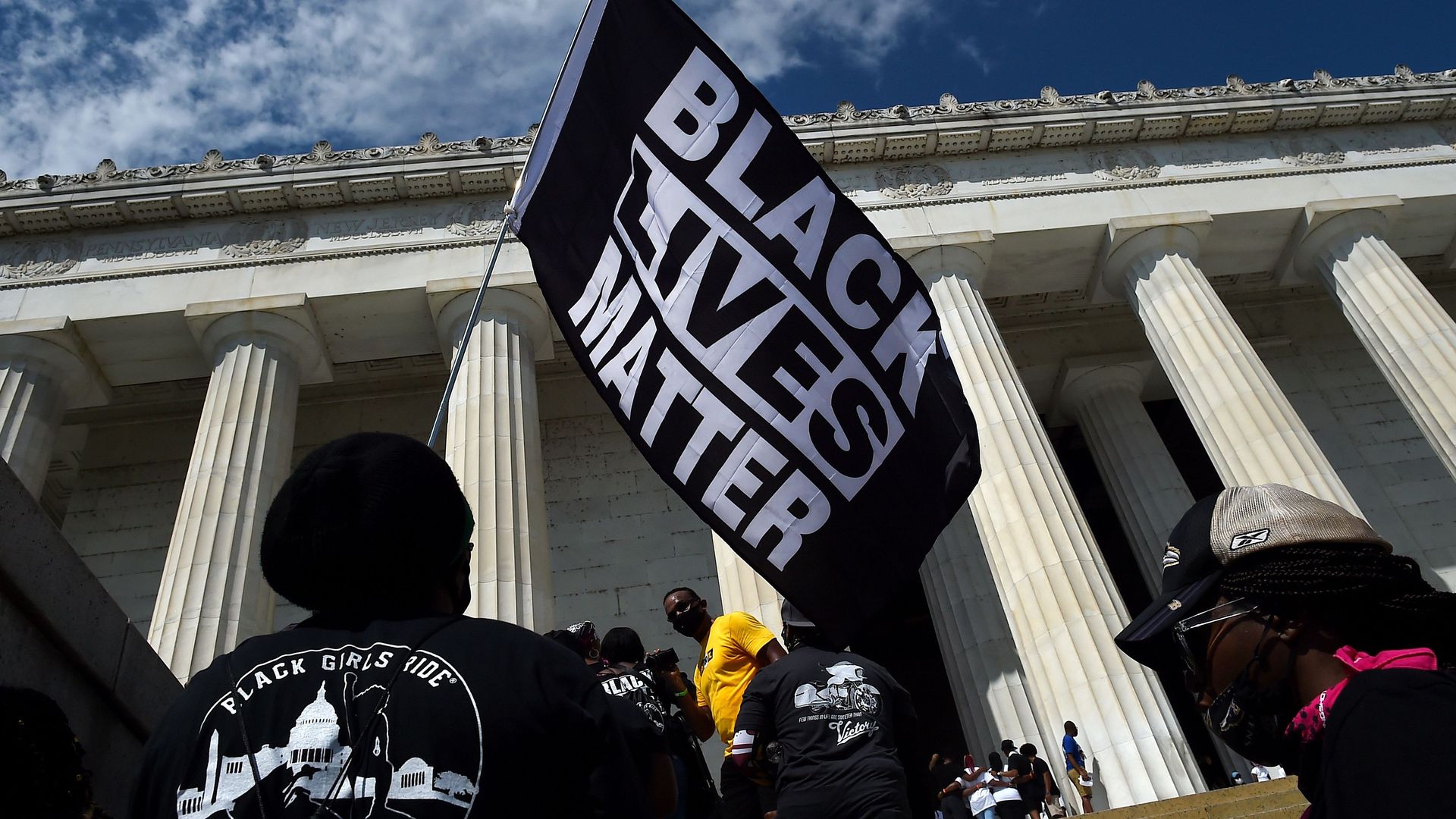Poll: Mayors acknowledge police violence as a problem but are resistant to major reforms
Add Axios as your preferred source to
see more of our stories on Google.

Thousands participated in a protest against racism and police brutality in August 2020 in Washington D.C. Photo: Olivier Douliery/Pool/AFP via Getty Images
Roughly 60% of U.S. mayors acknowledge police violence is a "problem in their communities," but 80% believe their police departments "do a good job" attracting "well-suited" officers, according to results of the 2020 Menino Survey of Mayors published Wednesday.
Why it matters: Protests against police brutality have swept the nation since last May, when white Minneapolis police officer Derek Chauvin killed George Floyd, a Black man, after kneeling on his neck for eight minutes and 46 seconds. The Black Lives Matter movement has since escalated calls to defund the police.
By the numbers: The survey, conducted annually by Boston University's Initiative on Cities, interviewed 130 mayors from 38 states last summer.
- 68% of mayors believe Black people are treated worse by police compared to white people, but it splits by party: 73% of Republican mayors and 14% Democratic mayors believe police treat white and Black people equally.
- 38% do not believe that police violence is an issue in their communities.
- 69% believe protests against police violence were "forces of positive changes in their cities."
- 56% of mayors are open to reallocating at least "a few" police resources to other parts of city government, though 80% believe their police budgets last year were "about right." 1 in 3 does not see the need to reallocate.
- When asked about desired reforms, only 16% supported bigger structural changes.
- Slight majorities recognize that lack of racial diversity and racism in the police force contribute at least "a little" to police violence.
The big picture: Black people are three times more likely than white people to be killed by the police, but 98% of police killings since 2013 have not led to any criminal charges, per Mapping Police Violence.
Cities at the center of last year's high-publicity protests have pledged reform to varying degrees and with mixed results.
- Though a majority of the Minneapolis city council vowed to disband the police department in the immediate aftermath of Floyd's death, in December the council voted to cut only 4.5% from the 2021 police budget, which did not change the number of cops on the streets, according to Rolling Stone.
- A settlement with Breonna Taylor's family requires Louisville, Kentucky, to provide housing credits for officers to live in the neighborhoods they police and grant only high-ranking commanders the authority to approve search warrant requests, AP reports.
What they're saying: "We need a comprehensive approach to reform, one that stresses transparency in operations, engagement with the public, an emphasis on values-oriented policing and the greater use of social services/mental health personnel," Inglewood, California, Mayor James T. Butts, a former police chief, said in a statement.
Methodology: The 2020 Menino Survey of Mayors uses a combination of open- and closed-ended questions to explore a myriad of salient local issues and policy priorities. The vast majority of interviews were conducted over the phone. This systematic sampling and recruitment effort yielded a representative sample of mayors of American cities with populations over 75,000.
